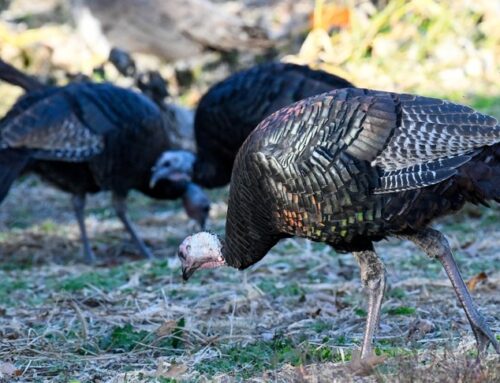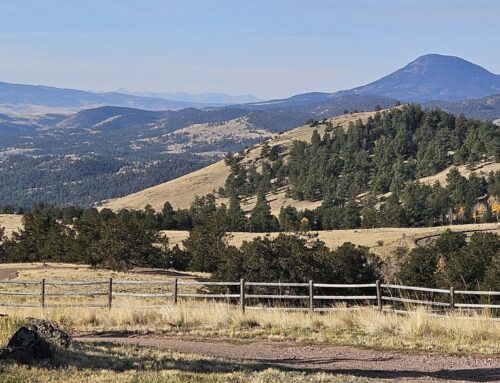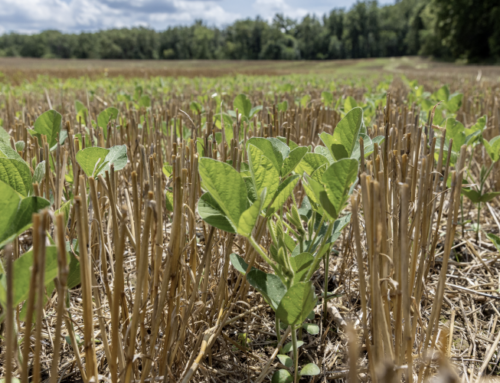Subscribe to the Bulletin for updates delivered right to your inbox.
A Message from Caroline Wade, STAR Executive Director
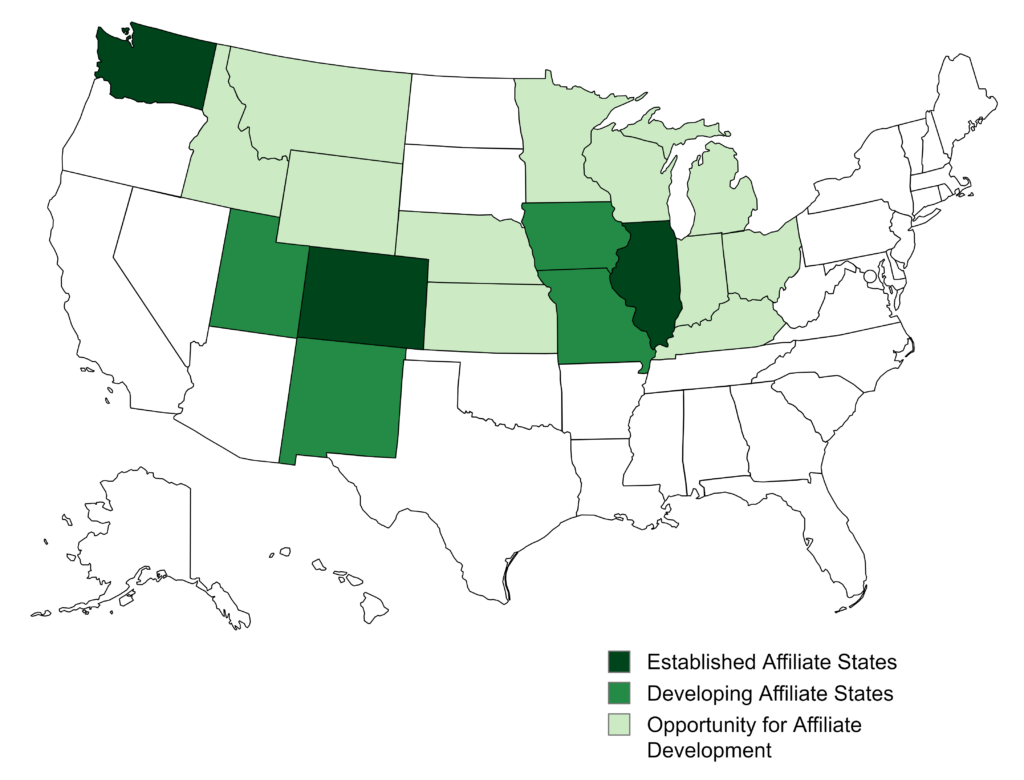 Spring is here and STAR is growing! National STAR has been busy working with our STAR Affiliates in IL, CO, WA, IA, and IN as we prepare for 2024 producer enrollment and launch of the new STAR Tool – stay tuned for some exciting announcements over the next few months. Significant progress has also been made on bringing STAR to NM and UT (see Spotlight on UT below) and on exploration of how STAR could amplify conservation efforts in WY and ID.
Spring is here and STAR is growing! National STAR has been busy working with our STAR Affiliates in IL, CO, WA, IA, and IN as we prepare for 2024 producer enrollment and launch of the new STAR Tool – stay tuned for some exciting announcements over the next few months. Significant progress has also been made on bringing STAR to NM and UT (see Spotlight on UT below) and on exploration of how STAR could amplify conservation efforts in WY and ID.
I am energized by not only what our team and our Affiliate teams have accomplished since our September 2023 launch, but the opportunities for where we are heading. In the complex world of environmental markets for agriculture, STAR offers calm in the storm, providing: 1) a common-sense and coordinated support structure directly to our farmers and ranchers, and 2) a clear pathway for partners investing in scaling conservation practices. We continue to believe that voluntary conservation programs need to be streamlined, simple, and valuable for producers, with more holistic investment directly in practices and on the ground technical support – rather than focused on complex and expensive carbon and ecosystem program reporting technologies and systems. STAR is a conduit – creating alignment of interests and funneling much-needed technical and financial support directly to producers to deliver conservation returns.
On March 6th, the Securities and Exchange Commission’s decided to make ESG reporting (Climate Related Disclosure Standards) voluntary, not mandatory, and dropped all scope 3 reporting (internal supply chain impact) requirements. STAR, as a simple and accessible program, shines a steady light through the sustainability reporting and environmental market chaos to deliver conservation progress. The decision by the SEC may take the wind out of the sails for many ecosystem and carbon market crediting efforts and lead to even more corporate sustainability strategy pivots. Now more than ever is the right time for the coordinated and producer-focused conservation programming that STAR provides.
We will need better cooperation, collaboration, and alignment to achieve increased producer engagement and more conservation practices on more acres at scale. Our vision is to “Empower farmers and ranchers to choose conservation as the standard on all agricultural lands to ensure a legacy of economic sustainability, clean abundant water, and healthy soils for future generations.” STAR and STAR Affiliates look forward to showcasing that vision as STAR rolls out across the country.
Spotlight on Utah STAR
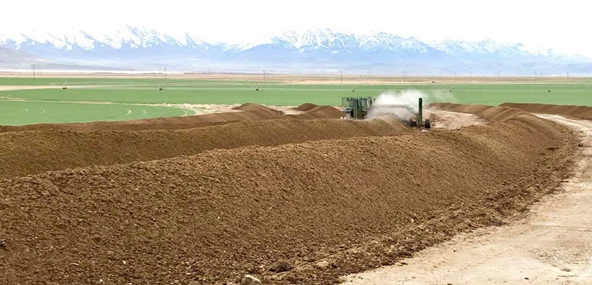 A Utah dairy producer who is enrolled in AgVIP separates the solids and liquids from his dairy waste, then composts the solids and uses them to fertilize his crop fields. In this photo, he is turning the compost piles. Photo provided by Utah STAR.
A Utah dairy producer who is enrolled in AgVIP separates the solids and liquids from his dairy waste, then composts the solids and uses them to fertilize his crop fields. In this photo, he is turning the compost piles. Photo provided by Utah STAR.
STAR is working with the Utah Department of Agriculture and Food (UDAF) in forming a new state STAR Affiliate partnership in Utah. UDAF currently has several conservation programs for farmers and ranchers to address resource concerns including water optimization, soil health, nutrient management, pollinator habitat, and agricultural land protection.
The STAR program will eventually be integrated with the UDAF’s pre-existing Agricultural Voluntary Incentive Program (AgVIP) with support from the Utah Soil Health Partnership and the Utah Association of Conservation Districts. Historically, the AgVIP program has incentivized producers to voluntarily develop and implement comprehensive nutrient management plans on their operations.
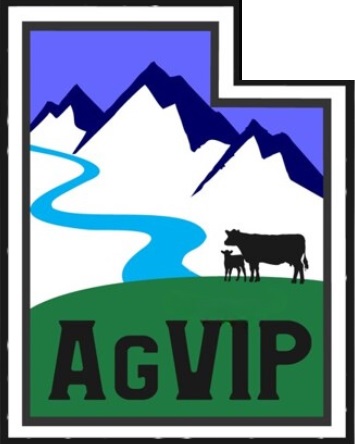 Said Katie Slebodnik, AgVIP Program Manager, “We think STAR will be a great addition to our current program offerings and give our producers a way to address these individual resource concerns in a more comprehensive way by taking steps to improve their management practices. When AgVIP was started, we wanted to be able to eventually branch out beyond just assisting producers with nutrient management practices. When we heard about STAR, we felt like it was the perfect opportunity to be able to make that dream a reality. We are looking forward to building on the existing field forms, as well as potentially creating some new ones that focus on topics such as irrigation water management, among others.”
Said Katie Slebodnik, AgVIP Program Manager, “We think STAR will be a great addition to our current program offerings and give our producers a way to address these individual resource concerns in a more comprehensive way by taking steps to improve their management practices. When AgVIP was started, we wanted to be able to eventually branch out beyond just assisting producers with nutrient management practices. When we heard about STAR, we felt like it was the perfect opportunity to be able to make that dream a reality. We are looking forward to building on the existing field forms, as well as potentially creating some new ones that focus on topics such as irrigation water management, among others.”
Earlier this month, UDAF was awarded $1 million during the Utah FY25 legislative session that will be used to begin integrating additional practices into the AgVIP program throughout the next year.
STAR Producer Spotlight
 Dennis Carney, Iowa
Dennis Carney, Iowa
This month, we highlight landowner Dennis Carney, a retired 5th generation farmer in North Central Iowa. He is a landowner using STAR when leasing his farm as a way to ensure that conservation standards are maintained on his land. A specific STAR rating must be obtained as a condition of lease renewal each year.
Say Dennis, “Local people understand local problems. We looked at a lot of national efforts, most everything was top down. We think local people are really the ones who understand the local problems. STAR was designed to really leverage that.”
STAR Affiliate Updates
IN-RICHES’ Rocky Mountain Soil Health Roadmap Now Available
Along with more than 200 other stakeholders from across the Rocky Mountain region, members of the CO STAR Affiliate and national STAR participated in the Rocky Mountain Soil Health Roundtable. This collaborative process was facilitated by the Integrated Rocky Mountain-region Innovation Center for Healthy Soils (IN-RICHES) and focused on seeking new ways to encourage the widespread adoption of voluntary soil health practices across the arid West. The Roundtable included an in-person event in Denver in September 2023, virtual events, additional stakeholder outreach, and culminated with the publication of a conference report. The full Roadmap is available here.
STAR Partner Updates
Apply for the LOR 2024 Field Work Initiative
STAR has been fortunate to receive funding from the LOR Foundation to support our work with western states. We are pleased to share the LOR 2024 Field Work Initiative funding opportunity for research into innovative approaches to using water in agriculture.
Farmers and ranchers in rural parts of Colorado, Idaho, Montana, New Mexico, and Wyoming are eligible for up to $10,000 to implement innovative water projects on their land (think: improved water efficiency, water reliability, water quality, crop yield or crop diversification, and labor efficiency). The application period is open until April 10, 2024. Read more information on eligibility and how to apply.
Opportunities at STAR
Join STAR as a Research Associate
National STAR has an opening for a Research Associate who will support the research components of the national STAR Program and STAR Affiliate programs with a focus on conducting foundational research to evaluate, identify, and document scientific evidence, data sources, and other information regarding the state of conservation in Affiliate states. The Research Associate will support the credibility and standardization of the national STAR Program and Affiliate STAR programs and work to explore and document developing science and evaluation methodologies to inform the continued improvement and development of STAR. This remote position will be a six-month, part-time contract. Learn more about this role on the STAR website.
Interested applicants should send a tailored cover letter describing their interest and qualifications for the role and annualized compensation requirements, together with a resume and possible start date to info@STARconservation.org.

